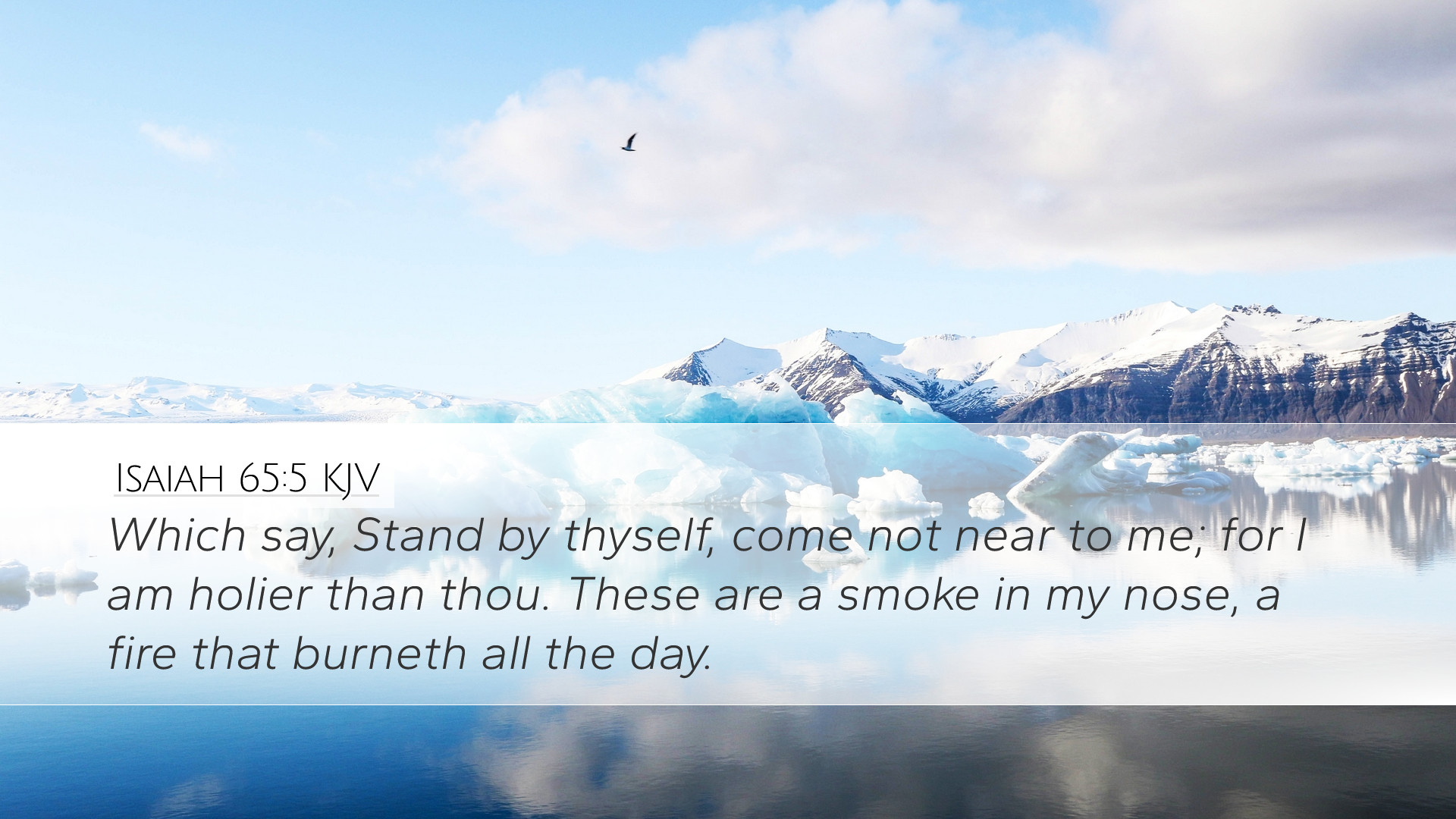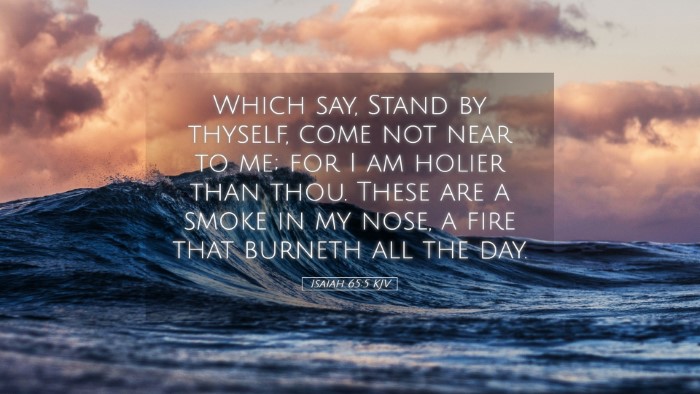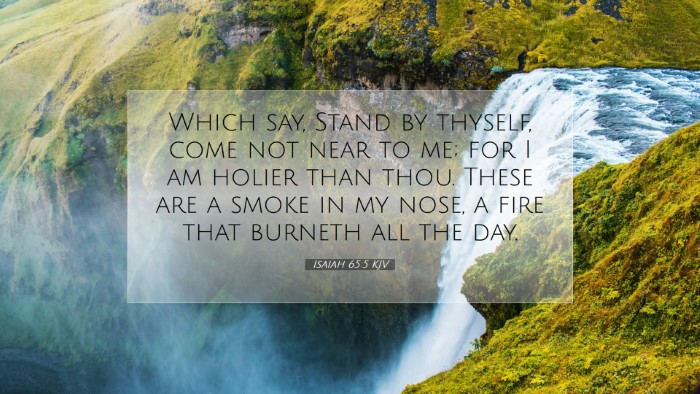Commentary on Isaiah 65:5
Isaiah 65:5 states:
"Which say, Stand by thyself, come not near to me; for I am holier than thou. These are a smoke in my nose, a fire that burneth all the day."
Introduction
This verse reflects the attitudes of the people who were self-righteous and judgmental, exhibiting a disdainful attitude towards others. They considered themselves to be set apart by their holiness, thus fostering a barrier around themselves, which is indicative of a deeper spiritual ailment.
The Context of Isaiah 65
The entire chapter deals with God’s response to a rebellious nation that has turned away from Him. It is important to note that Isaiah often contrasts the remnants of those who seek God with those who are self-satisfied in their spiritual pride.
Verse Breakdown
-
"Which say, stand by thyself..."
This opening phrase indicates a callousness towards others. The self-righteousness depicted is reflective of a greater issue within the community—as they refuse to allow others close, they fail to embody the communal nature intended by God.
-
"come not near to me; for I am holier than thou."
The declaration of superiority is remarkably profound in its insult. It highlights a misconception about holiness, suggesting that it is tied to separation from others, rather than to God’s grace. Such attitudes breed division rather than unity, essential for the body of believers.
-
"These are a smoke in my nose."
This analogy serves to illustrate God’s displeasure. Smoke is irritating and suffocating, much like the hypocrisy and self-righteousness of the people. They think themselves pleasing in their devotion but are, in fact, an offense to God.
-
"a fire that burneth all the day."
This image is one of constant annoyance—much like a smoldering fire that never seems to go out, the actions of the self-righteous are a continual source of irritation to God. It suggests an ongoing judgment on hypocrisy and a clarion call for genuine repentance.
Theological Insights
This verse provides ample opportunity for theological reflection on the nature of holiness and the pitfalls of self-righteousness. It emphasizes that:
- Holiness Defined: Holiness is not merely an issue of outward appearance or religious activity; it is intimately related to one's heart and relationship with God.
- Social Isolation: The call to “stand by thyself” is rejected by God, as He desires His people to live in community, reflecting His image through love and acceptance.
- The Danger of Legalism: Those who think themselves to be righteous can become enslaved by their own standards, failing to comprehend the grace that is granted to all who seek God.
Practical Applications
For pastors, students, and theologians, Isaiah 65:5 illustrates critical truths that can be applied in ministry and daily life:
- Embrace Authenticity: Foster genuine relationships that allow for vulnerability, rather than distancing ourselves from those we deem lesser.
- Promote Humility: Recognize that all believers are saved by grace and must remain humble in their expressions of faith.
- Encourage Community: The church should work to create an environment where all individuals feel accepted and valued, echoing God’s love and rejection of superficial barriers.
Historical Context
Understanding the historical background in which Isaiah prophesied is critical. The Sabbath was often treated as a ritualistic observance rather than a relational engagement. The context reveals that many who claimed to be the people of God were only so in name and practice.
Commentators' Perspectives
-
Matthew Henry:
Henry emphasizes the severity of God's response to those who engage in hollow religion. He remarks on the separation as not being reflective of true holiness and points out the detrimental effects such attitudes have on the health of the community.
-
Albert Barnes:
Barnes discusses the danger of self-righteousness and how it can lead to a disconnect from God’s true intentions for His people. He warns against the arrogance encapsulated in the phrase, highlighting that those who are 'holier' often fall short of understanding their dependence on God’s grace.
-
Adam Clarke:
Clarke brings attention to the imagery of smoke and fire, emphasizing its implications for God’s judgment. He likewise notes the chaos caused by self-righteous attitudes and delineates the necessity of repentance and return to sincere worship.
Conclusion
Isaiah 65:5 serves as a sobering reminder of the dangers of self-righteousness and the call to embrace genuine holiness that fosters unity and community. It urges believers to strive for humility and true worship in spirit and truth, perpetually leaning on the grace of God that integrates rather than isolates. As we engage with this verse, may it challenge and transform the way we live out our faith in community.


